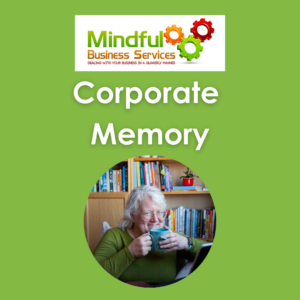Accountability Counts Both Ways
I find many people find these two words hard to deal with, especially Authority, ‘Quakers don’t deal well with authority’, ‘I don’t like authority’, or ‘I don’t want authority’ I get told.
When I ask about Accountability – they often tell me they don’t like that for them. However they often would like to know who they can blame or make accountable for one of the following problems or issues… especially if it means someone else will pay for or deal with it!

Everybody can be great because anybody can serve. ... You only need a heart full of grace. A soul generated by love. And you can be that servant.
Martin Luther King Jr Tweet
Accountability should be used to help not hinder.
Accountability should help clarify who is and who isn’t responsible for this thing, and who shares responsibility for that thing. But it should also clarify who checks that those responsibilities are being carried out correctly and as agreed. This should be part of an supportive network of checks and balances, not used to cast blame or find faults.
Accepting accountability when things go wrong is important too.
Authority is not Authoritarianism
Authoritarianism is a political system which aims to bring all power into the centre and keep it there. Authority instead should be seen as giving a ‘slice of power’ that applies to a specific time or part of an organisation.
If you have accepted a nomination for Trustee then you have also accepted both authority to make decisions and accountability to both the organisation as a whole and to any regulatory bodies.
Accountability & Authority
In volunteer run organisations, including faith groups and community groups while there may be some clear lines of authority and accountability there are other places it isn’t clear. Especially if, like Quakers, the organisation tends to be arranged in a non-hierarchical fashion with regular changes of roles.
It can be as simple as ‘you have volunteered to be organising the biscuits and drinks after meeting’ so ‘you have authority to choose what biscuits etc. you buy’.
There probably isn’t a budget given. However, if you spend a bit more to get Fair Trade tea and coffee, ensure there are animal and plant milks available and grab a packet of gluten free biscuits so that everyone can have a treat then probably no one is going to question your choices.
Alternatively, if you buy the cheapest of everything, even if that means things are stale etc. you may find people hold you accountable for the lack of nice things after the meeting.
What is often harder is seeing how this scales up to encompass the entire organisation. Especially if there isn’t clarity about who is responsible for or has authority to make decisions in the most common scenarios.
Chart of Accountability
Coming up with a Chart of Accountability can be a useful exercise for all organisations, especially where there are overlapping groups of people. I usually start with a spidergram showing the various groups and how they interact. Then not focusing on groups or roles you can start a list of tasks, larger projects etc. and see how those might group together. There are many different models (RACI, PACE etc.) in business analysis but for small charities I find those don’t work as well as just walking through a few larger projects, such as getting the TARA completed, ensuring safeguarding (and other committees) is appropriately compliant, having all the different parts complete the Memorandum of Understanding etc.
- Have you created a Chart of Accountability?
- Do you have a Memorandum of Understanding explaining who is responsible for what, and the expectations of accountability between the various parts of your organisation?
- How do you ensure that everyone involved knows who to go to with each type of problem?
- Do your policies and procedures lay out levels of authority and accountability for each committee, role or task?
Do those served grow as persons? Do they, while being served, become healthier, wiser, freer, more autonomous, more likely themselves to become servants?
Robert K Greenleaf

Wendrie Heywood
MBS Founder

Join us Wednesday 15th January from 18.00-19.00 (UK)
During the session, we will share tried and tested hints and tips to support you with effective communication. The session is designed to ensure that every team member is aligned with your goals – to help you establish a thriving community. This is the first of our year long exploration of communications








